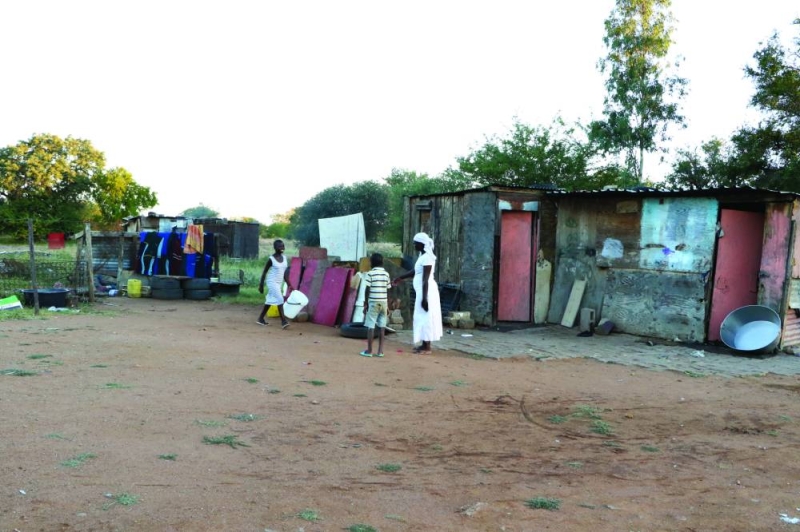Is a human rights approach to the economy what Botswana needs?
Lewanika Timothy | Tuesday November 19, 2024 09:53


The execution of Botswana’s economic roadmap has been forged through following National Development Plans (NDP) which have been designed to reflect the policy choices and developmental goals of different national leaders.
The sixth administration of President Duma Boko has promised to anchor its economic policy on human rights, an unprecedented approach which differs from the development goals of past governments.
A human rights approach to the economy emphasises integrating human rights principles into economic policy and practices. Rather than focusing solely on maximising economic growth or profits, this approach seeks to ensure that economic systems and policies respect, protect, and fulfil basic human rights for all individuals. These rights predominantly anchor on economic rights, as defined by international frameworks like the Universal Declaration of Human Rights (UDHR) and various human rights treaties.
A United Nations Children's Fund (UNICEF) country report on Botswana issued last year revealed that the one of the leading challenges facing the economy of Botswana is the high level of inequality, particularly income inequality. The economic measure of income inequality, the Gini-coefficient, has seen Botswana ranking as one of the countries with the highest inequality in the world.
The Gini coefficient is a measure of how equally a country's income is distributed, with 0 representing perfect equality and 1 representing perfect inequality. To give an idea of the order of magnitude of this increase in the Gini can be expressed in monetary terms by saying that while in 2009-2010 the average difference in standardised consumption expenditure between two individuals taken at random was P4,068, this difference increased to P6,447 in 2015-2016.
With these facts at hand there is no doubt that Botswana needs to stop and wait for the marginalised to catch up. A human rights approach to the economy will in this regard help curb discrepancies and differences that have been perpetuated by capitalism.
The share of the population living in extreme poverty stands at 13.5 per cent and is over four times higher than predicted by Botswana’s GDP per capita and also worse when compared to countries with similar income levels.
“The pace of poverty reduction has stagnated in recent years, with economic growth not translating into improvements in household wealth, thereby contributing to Botswana’s status as one of the most unequal countries in the world, with a Gini coefficient of 0.53,” UNICEF report reads.
UNICEF additionally established that the Human Capital Index is not consistent with the country’s level of development and that around half of the country’s children are affected by multidimensional poverty, with the rate rising to 68 per cent in rural areas. Last year was declared a severe arable agricultural drought year throughout the country, aggravating an already chronic drought situation, compounded by the El Nino effect and evidence of the impact of climate change.
Theoretically, a human rights-based economy seeks to ensure that all individuals, regardless of their social, economic, or cultural background, have equal access to resources, opportunities, and the benefits of economic development. This includes addressing systemic inequalities, such as poverty, gender discrimination, racial injustice, and the marginalisation of vulnerable groups, passing the socio-economic litmus test for the need for a human rights approach to the economy
Fiscally, the country has been running budget deficits with deficits since March 2017, accumulating P52 billion in shortfalls over the years. This has been largely due to a combination of generally declining mineral revenues and the COVID-19 shock, set against ambitious and expansionary spending plans.
Inequality, or the unjust distribution of resources such as income and opportunities within a population, is emerging as one of the government’s greatest headaches. The challenge in past administrations has been the balancing act of pursuing a high-income economy, while carrying all citizens along, ensuring that no none falls behind, is ignored or unattended to by the transformation of the economy. The challenge is also expressed in terms of avoiding the entrenchment of a two-tier economy where citizens are either super-rich or super-poor and thus dependent on social services.
Traditional economic models often focus on growth and efficiency, sometimes at the expense of social equity. A human rights approach explicitly challenges systemic inequality and poverty, ensuring that economic benefits are more equally distributed across society.
Economic systems designed to prioritise human rights could, in the short term, conflict with traditional growth models that have been established by past regimes in Botswana. Policies aimed at wealth redistribution or environmental protection might be seen as limiting economic growth or business profitability. Balancing these competing priorities can be challenging, especially in times of crisis.
Economic decisions should be inclusive, meaning that all people, especially marginalised groups, should have a say in economic policies and processes that affect their lives. This is rooted in the principle of participation, which is a cornerstone of human rights.
While human rights principles are clear, translating them into concrete economic policies and measurable outcomes can be difficult. Economic indicators like GDP do not capture all dimensions of human well-being, and measuring the success of human rights-based economic policies may require new metrics that are not yet widely accepted or established.
